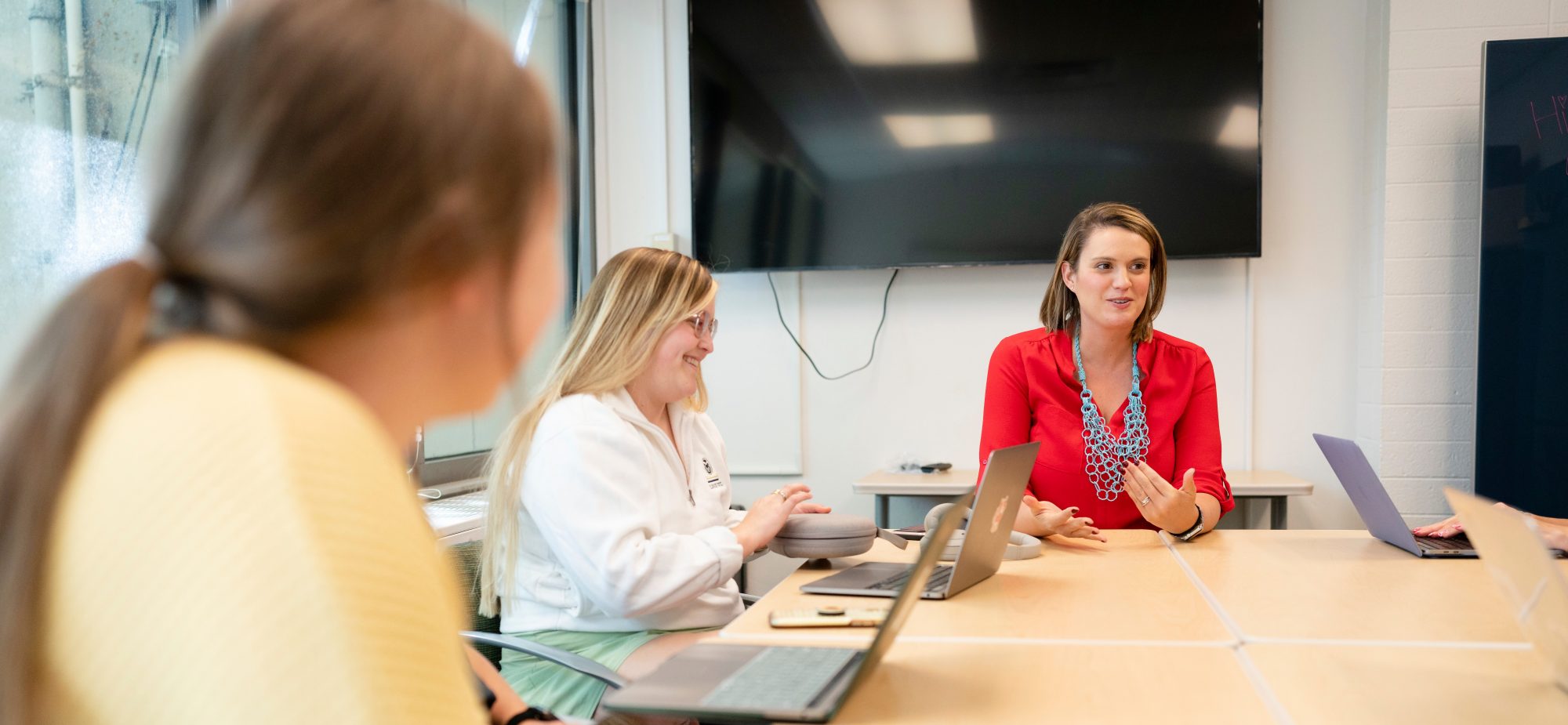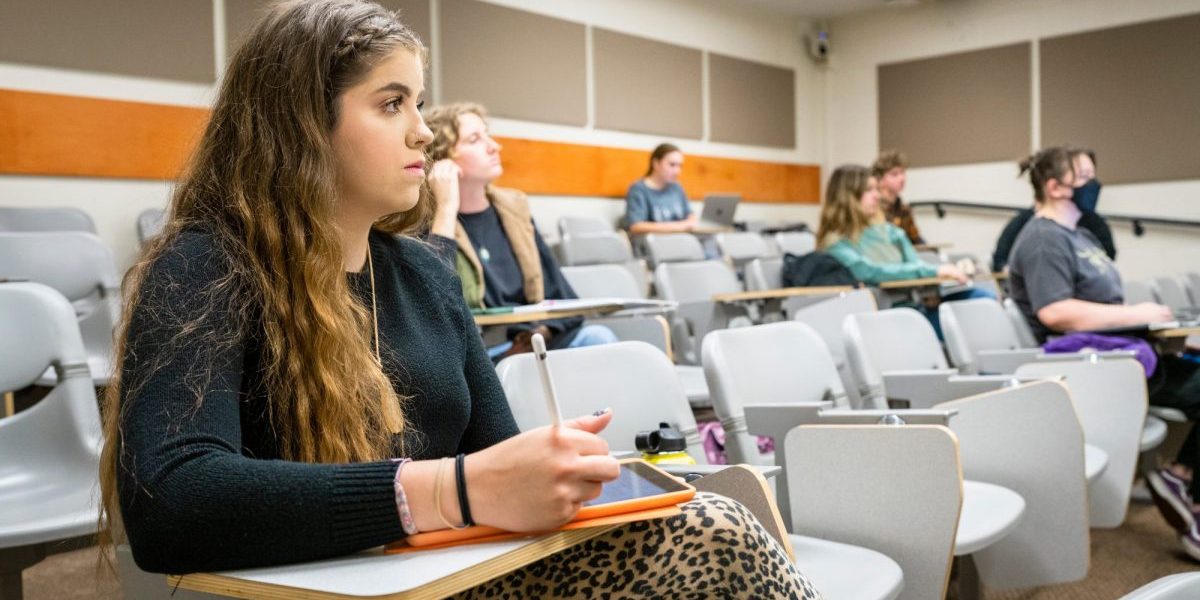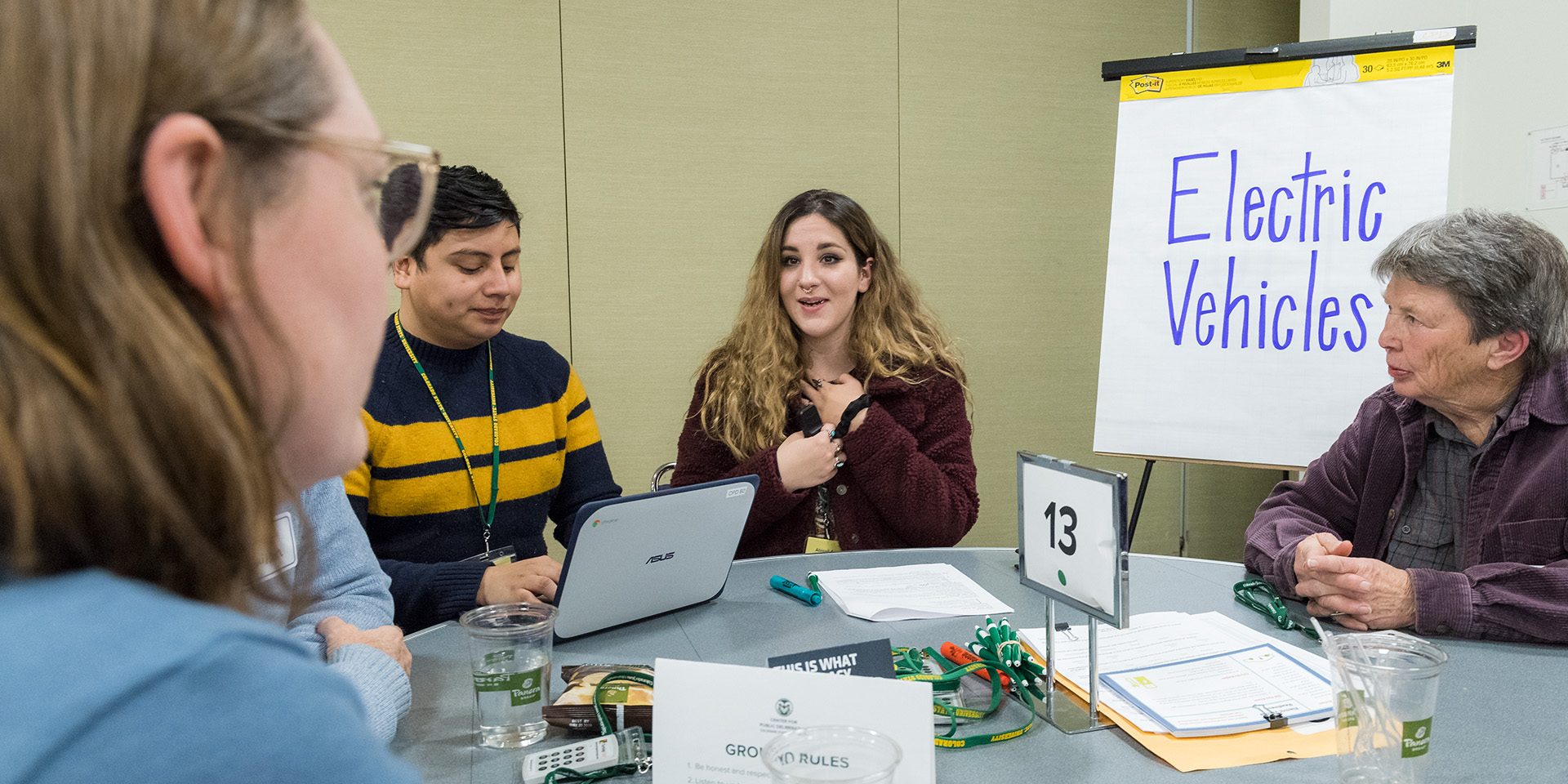
M.A. in Communication Studies
M.A. in Communication Studies
Join Our Collaborative Community
Our award-winning M.A. in Communication Studies program is for students who a seek rigorous, advanced degree offering the best in the discipline’s scholarly breadth, and a deeply supportive and collaborative community.
Our M.A. program is designed to be completed in two years. We provide an unparalleled combination of structure, mentorship, and opportunity across scholarship, teaching, and career development.
"You should come to CSU for Comm Studies because of the support that you're going to receive, because you're never going to be alone in your endeavors. Your work will be given the attention that it needs to make you a better scholar. And, you'll be celebrated like no other program that I've ever witnessed." - Jade Young, M.A. Student
Our Integrated Approach
Scholarship
- We offer core courses in theory, criticism, and critical and social science research methods in each of our three areas of specialization: Film and Media Studies, Relational and Organizational Communication, and Rhetoric and Civic Engagement.
- We do not track students in a single specialization. You will design a custom program of study that fits you interests and goals. We have an excellent record of placing our M.A. graduates in the top Ph.D. programs in the nation. Many also apply their training as communication researchers in public, private, and non-profit organizations.
Teaching
- Our award-winning Graduate Teaching Assistantship program covers your tuition and offers a 9-month stipend for the two years you’re in the program. All GTAs teach SPCM 200: Public Speaking and some have the opportunity to assist in large lecture classes as well.
- Graduate Teaching Assistants receive extensive training and professional mentorship, including graduate seminars in pedagogy and professional development, and one-on-one faculty mentoring.
Career Development
- We offer conference travel support and competitive opportunities for grants to support your own research projects, and modest supplemental funding to serve as research assistants for faculty members.
- We support your goals, whether that’s becoming the best teacher you can be, publishing your work, developing a new area of research, preparing for a doctoral program, or applying your expertise beyond academia.
M.A. in Communication Studies - Thesis Track
Program Requirements

Required Courses Credits
SPCM 601 History of Rhetorical Theory (3)
SPCM 612 Rhetorical Criticism (3)
SPCM 638 Communication Research Methods (3)
SPCM 639 Communication Theory (3)
SPCM 646 Media Theory (3)
SPCM 675 Speech Communication Pedagogy (3)
SPCM 684 Supervised College Teaching (3)
SPCM 692 Seminar (Intro to Graduate Studies) (3)
SPCM 699 Thesis (6)
Electives 500 level & above. (12)
42
Thesis
All Plan A graduate students are required to write a thesis under the supervision of a graduate advisor and thesis committee according to the guidelines and requirements set forth by the Graduate School.
Required Courses
SPCM 601 - History of Rhetorical Theory (3)
SPCM 612 - Rhetorical Criticism (3)
SPCM 638 - Communication Research Methods (3)
SPCM 639 - Communication Theory (3)
SPCM 646 - Media Theory (3)
SPCM 675 - Speech Communication Pedagogy (3)
SPCM 684 - Supervised College Teaching (3)
SPCM 692 - Seminar (Intro to Graduate Studis) (3)
SPCM 699 - Thesis (6)
Electives - 500 level & above (12)
42 Total Credits
Thesis
All Plan A graduate students are required to write a thesis under the supervision of a graduate advisor and thesis committee according to the guidelines and requirements set forth by the Graduate School.

M.A. in Communication Studies - Deliberative Practices Track
Interested in studying facilitation and deliberation with one of the most ground-breaking and innovative civic engagement centers in higher education? Are you seeking a program that grounds you in local community issues, introduces you to municipal and nonprofit community initiatives, and provides exceptional outreach and engagement experience?
The Department of Communication Studies houses the nationally recognized Center for Public Deliberation (CPD) , which is dedicated to enhancing local democracy through improved public communication and community problem-solving.
Applied Research Project
All Plan B graduate students must complete an applied research project that is supervised by a graduate faculty member with expertise in deliberation, and a graduate committee. Students may complete a project independently, or they may contribute to the ongoing research of the CPD. Plan B students should prepare and defend a prospectus or research project plan during the fall semester of their second year.
Required Courses Credits
SPCM 408 Applied Deliberative Techniques (3)
SPCM 508 Deliberative Theory and Practice (3)
SPCM 601 History of Rhetorical Theory (3)
SPCM 612 Rhetorical Criticism (3)
SPCM 638 Communication Research Methods (3)
SPCM 646 Media Theory (3)
SPCM 639 Communication Theory (3)
SPCM 675 Speech Communication Pedagogy (3)
SPCM 684 Supervised College Teaching (3)
SPCM 692 Seminar (Intro to Graduate Studies) (3)
SPCM 686 Practicum (3)
SPCM 695 Independent Study (3)
Electives 500 level & above. (9)
42
"What sets the deliberative track apart from your standard track in a master's program is that you have the opportunity to do an applied project instead of a traditional thesis. Students will design their own community forum and write a large research paper on the outcomes."
CPD Managing Director Sabrina Slagowski-Tipton ('10, B.A.; '16, M.A. - Deliberative Practices Specialization)
The Deliberative Practices Specialization track augments the standard M.A curriculum with deliberation coursework, training, mentorship and research. This degree option is designed to be completed in two years.
Applied Research Project
All Plan B graduate students must complete an applied research project that is supervised by a graduate faculty member with expertise in deliberation, and a graduate committee. Students may complete a project independently, or they may contribute to the ongoing research of the CPD. Plan B students should prepare and defend a prospectus or research project plan during the fall semester of their second year.
Required Courses
SPCM 408 - Applied Deliberative Techniques (3)
SPCM 508 - Deliberative Theory and Practice (3)
SPCM 601 - History of Rhetorical Theory (3)
SPCM 612 - Rhetorical Criticism (3)
SPCM 638 - Communication Theory (3)
SPCM 646 - Media Theory (3)
SPCM 638 - Communication Research Methods (3)
SPCM 692 - Seminar (Intro to Graduate Studies) (3)
SPCM 686 - Practicum (3)
SPCM 695 - Independent Study (3)
Electives - 500 level & above (9)
39 Total Credits
"What sets the deliberative track apart from your standard track in a master's program is that you have the opportunity to do an applied project instead of a traditional thesis. Students will design their own community forum and write a large research paper on the outcomes."
CPD Managing Director Sabrina Slagowski-Tipton ('10, B.A.; '16, M.A. - Deliberative Practices Specialization)
The Deliberative Practices Specialization track augments the standard M.A curriculum with deliberation coursework, training, mentorship and research. This degree option is designed to be completed in two years.
Program Funding
We do our best to minimize the cost of attending graduate school by automatically considering all applicants to the M.A. in Communication Studies program for Graduate Teaching Assistantships.
- All GTAs receive full tuition remission, pending a positive annual review and successful progress toward their degree.
- GTAs receive a monthly stipend to defray cost of housing, fees, books, etc. The 2024-2025 stipend for M.A. students is $1,902/month for 9 months.
- Funding is not provided during the summer; however, the department also offers modest Research Assistant stipends to graduate students on a competitive basis.
Learn More
Selecting the right graduate program can be overwhelming. We invite you to talk with faculty and current graduate students. Start the conversation with an email to Dr. Faw or our graduate studies coordinator. Then come visit to see what we’re all about!

